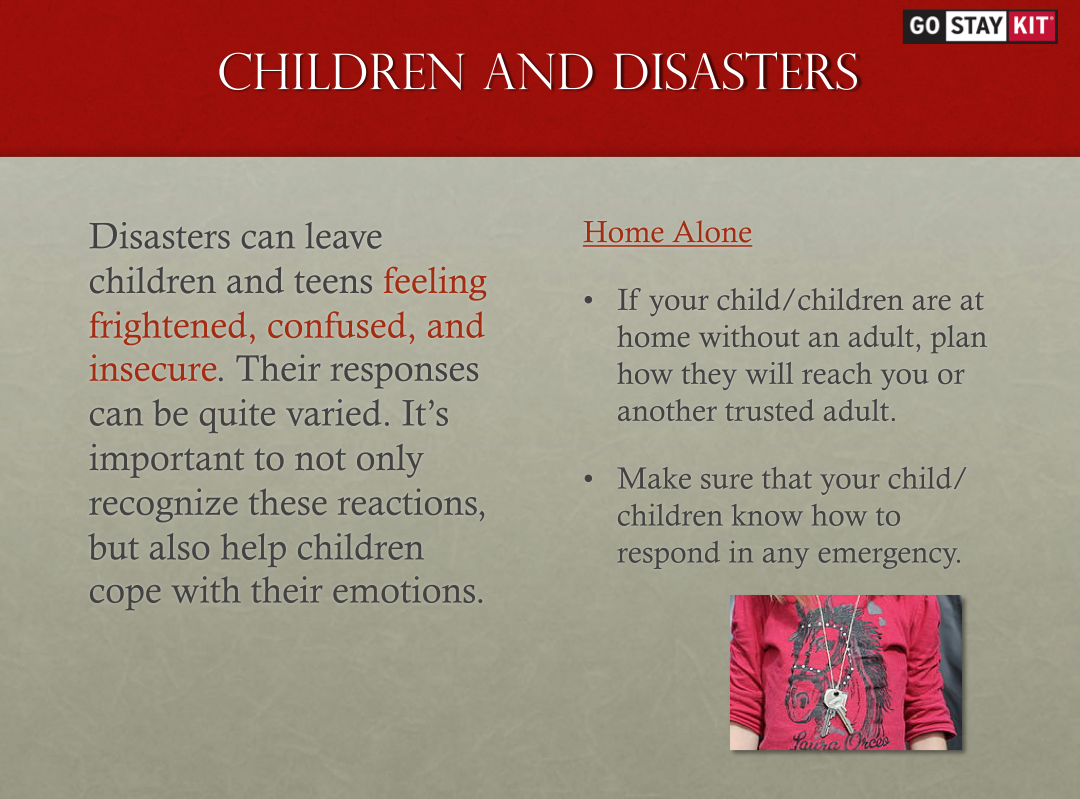When an emergency situation strikes we tend to think about all the obvious things that we should do next, like find our 72-hours Kit? Make sure we have a situational awareness of the event? Or where exactly are our friends and family? But, we also have to consider the children. Experience has shown that they’re just as likely to be frightened, confused and insecure as the adults. They feel powerless and unsure of what to do next, just as we do. Your reaction to the natural or manmade disaster can have a big impact on them.
Children will look to the adults nearby to observe how they’re handling the situation, as a way to gage how they themselves should act or react. By and large children don’t have the coping skills that adults have, and their emotions will vary wildly during a disaster event. One of the big ways you can alleviate their uncertainty is to have a disaster plan in the works, and make sure your children know about it.
For example, tell them what generally to do during the emergency (your geographical location specific) and where to meet up after the event. This is extremely important information to convey to the children and teens around you before an event ever happens.

